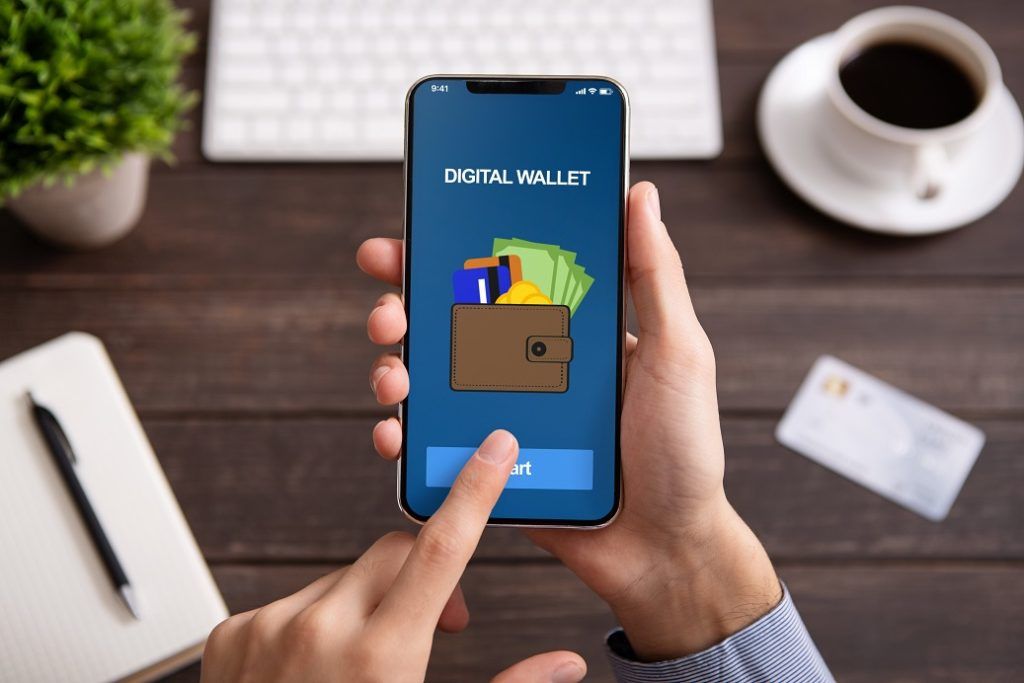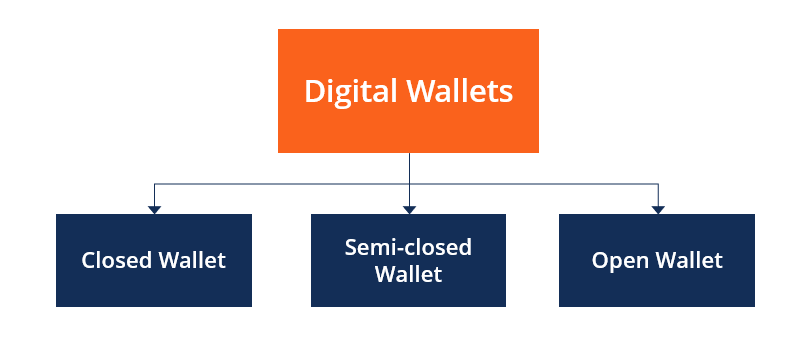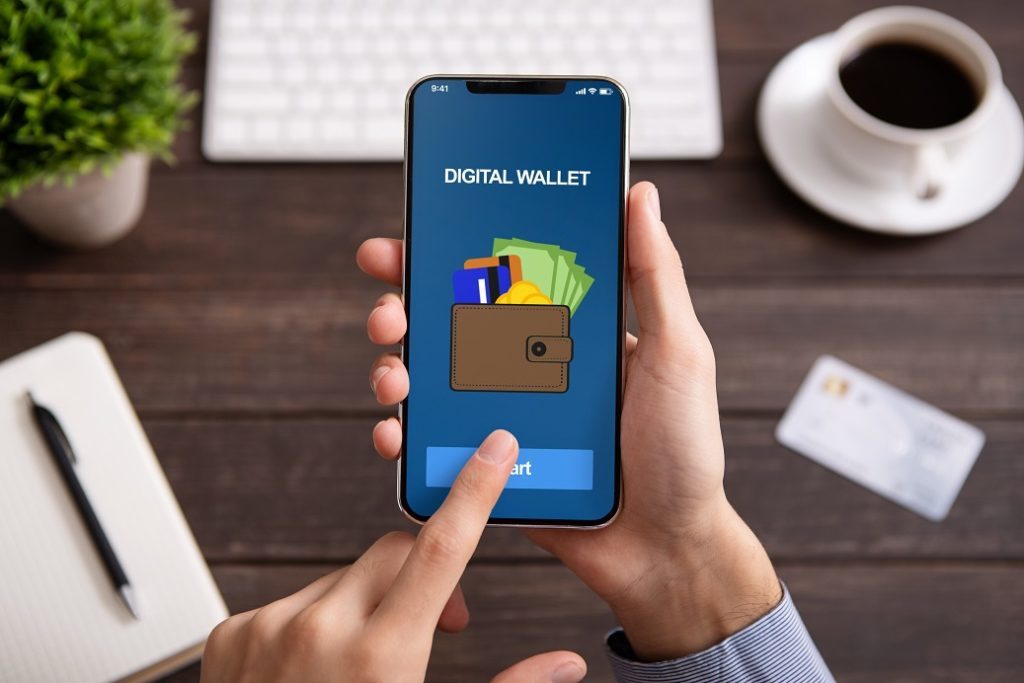What is a Digital Wallet?
A digital wallet refers to software, an electronic device, or an online service that enables individuals or businesses to make transactions electronically. It stores the payment information of users for different payment modes on various websites, along with other items such as gift coupons and driver’s licenses. A digital wallet is also known as an e-wallet.

Traditionally carried in the form of a smartphone app, a digital wallet can also exist in other forms, such as a desktop. However, the mobile app is the most popular version of the digital wallet, owing to its mobility and flexibility.
Digital wallets are not only convenient to use in certain cases but also safer than traditional wallets. Users of digital wallets need to download the specific apps created by banks or trusted third parties to avail of the service.
Summary
A digital wallet refers to a software, electronic device, or online service that allows individuals or businesses to make electronic transactions.
A digital wallet stores all the payment information of users in a secure and compact form, reducing the need for physical wallets.
A digital wallet requires users to download the digital wallet app on their smartphones or other physical devices.
Significance of a Digital Wallet
- A digital wallet securely stores all the payment information of users in a compact form. Thus, it greatly reduces the need to carry physical wallets.
- Companies that need to collect consumer data for their marketing needs can benefit greatly from digital wallets. They get to know the purchasing habits of consumers and increase the effectiveness of the marketing methods of their products. However, it leads to a loss of privacy for consumers.
- Many developing countries using digital wallets may be able to increase their participation in the global financial market.
- Digital wallets allow users to transfer funds to friends and family residing in different nations.
- Moreover, digital wallets eliminate the need for physical banks and companies in order to open and maintain a bank account. Hence, they also connect individuals and businesses in rural areas.
- A digital wallet is required to make transactions and maintain balances of cryptocurrencies.
Types of Digital Wallets
The following are the three types of digital wallets:

1. Closed Wallet
A company selling products and/or services can develop a closed wallet for customers. Users of a closed wallet can use the funds stored to make transactions with only the issuer of the wallet. The money from cancellations, returns, or refunds is stored in the wallets. Amazon Pay is an example of a closed wallet.
2. Semi-closed Wallet
A semi-closed wallet allows users to make transactions at listed merchants and locations. Although the coverage area of such wallets is restricted, both online and offline buying can be done through the wallets. However, merchants need to enter into agreements or contracts with the issuers for accepting payments from the mobile wallets.
3. Open Wallet
Banks or institutes partnered with banks issue open wallets. Users with open wallets can use them for all transactions allowed with a semi-closed wallet in addition to withdrawal of funds from banks and ATMs and transfer of funds.
Examples of Digital Wallets
1. PayPal One Touch™
The PayPal One Touch™ app is an extension of the usual services offered by PayPal. It enables users to make payments or transfer funds faster by allowing them to skip the login screen and eliminate the need to enter passwords. PayPal’s mobile wallet app can also be operated on a desktop, laptop, or tablet.
2. Apple Pay
The Apple Pay digital app is streamlined and available exclusively for users of iPhones, iPads, and Apple watches. It allows users to make transactions for both online and in-store purchases. For in-store transactions, users can unlock their phones and hold them near a compatible point of sale system. The Apple Pay app enables a seamless and secure way of payments, providing ease of experience.
3. Google Pay
The Google Pay app enables users to make transactions on an app or any website using debit or credit card details saved to the users’ Google Account, Google Play, Chrome, YouTube, Android phones, and watches. The app also supports other electronic documents such as student ID, movie tickets, gift coupons, store cards, and transportation tickets.





